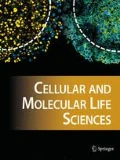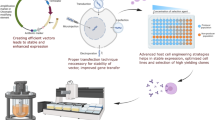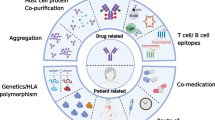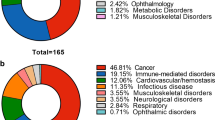Abstract.
Expressed immunoglobulin (Ig) genes undergo alterations in sequence and genomic structure in order to optimize antibody function. A single B cellspecific factor, activation-induced deaminase (AID), initiates these changes by deamination of cytosine to uracil. Uracil in DNA is encountered commonly, and conserved pathways are responsible for its faithful repair. However, at the Ig loci of B cells, AID-initiated damage is processed to produce three distinct outcomes: somatic hypermutation, class switch recombination and gene conversion. This review focuses on the role of AID in Ig gene diversification, emphasizing how AID functions within the mechanism of the Ig gene diversification pathway; and highlights open questions for future research, particularly the most provocative current question: what makes a gene a target for AID-initiated mutagenesis?
Similar content being viewed by others
Author information
Authors and Affiliations
Corresponding author
Additional information
Received 29 September 2006; received after revision 25 October 2006; accepted 29 November 2006
Rights and permissions
About this article
Cite this article
Vallur, A.C., Yabuki, M., Larson, E.D. et al. AID in antibody perfection. Cell. Mol. Life Sci. 64, 555–565 (2007). https://doi.org/10.1007/s00018-007-6434-2
Published:
Issue Date:
DOI: https://doi.org/10.1007/s00018-007-6434-2




